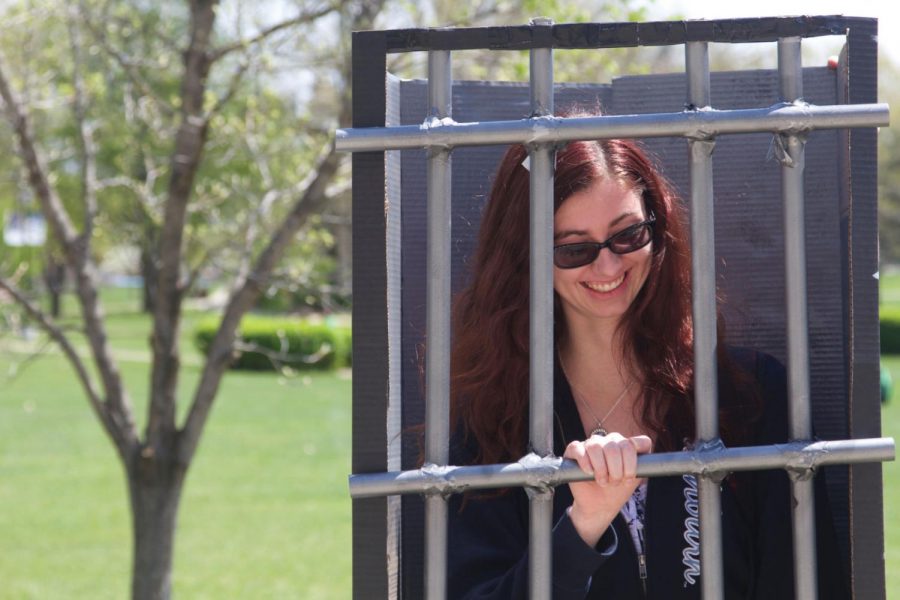Young Americans for Liberty raise awareness for Incarceration
April 22, 2015
At 11 a.m. to 2 p.m. on April 21, the student organization Young Americans for Liberty hosted an event to raise awareness about criminalization in the United States.
“Essentially, we’re trying to raise awareness about over-criminalization in the United States,” Matthew Becker, a senior political science major, said. “We have five percent of the world’s population and 25 percent of the total population of incarcerated people.”
According to Families Against Mandatory Minimums (FAMM), forty percent of drug offenders sentenced in 2012 were under the age of thirty. Of that 40 percent, one-third of those charges were marijuana offenses.
“We’re trying to…get people to understand that we need to fix the system,” Becker said. “What is a felony? What should we be putting people in jail for? What is a crime and what is not?”
According to FAMM, the United States incarcerates more people than any other country. Young Americans for Liberty (YAL) add to this statistic by saying 93 percent of those incarcerated were sentenced for non-violent crimes.
“Generally, the idea is innocent until proven guilty and it actually goes to show that’s really not the case and we’re trying to help highlight that,” said Brian Ashley, a senior mass media major. “If nothing else, [we want to] give students some basic information on what they can do if they find themselves in a situation like this.”
This information included tips about how to deal with the police. The tips, printed on a business card, included things you could say to the police, such as “I do not consent to any searches” or “Am I free to go, or am I being detained?”, and a list of ten points about how to deal with the police, number one being always be calm and cool.
“Know your rights and be confident in what you do,” Ashley advised students.
According to FAMM, half of all drug offenders sentenced in 2013 had no-to-little criminal record.
“Some people knowingly walk into these situations, a lot of people unknowingly,” Ashley said. “The only thing you can do to protect yourself is to know about it, and we’re trying to help people know about it.”
Ashley went on to add that they also were trying to work on the preventative side of the issue.
“Once you get part of the system, it’s a lot harder to get out of it,” Ashley said. “But the nice part is…there’s a lot of things you can do before any of this happens.”
According to FAMM, the average length of a federal drug sentence is nine years, and because Congress passed a law that created mandatory minimum sentences, which made all drug crimes receive the same sentencing, federal prisons have grown by 800 percent.
“If you had a party at your house two weeks ago and you’re under twenty-one and you had a bottle of booze,” Ashley said. “The cops come in looking for something unrelated, they see that—boom, you’re caught. It’s one of those things, if you’re not thinking about it, you could get caught with it, and we want to let students know [they should] think before [they] act.”
Becker urged students interested in this issue to join YAL, which meets on Thursday afternoons at 4 p.m. in the Cotton Room.
When asked about what advice he had for students, Ashley quoted the Drugs Abuse Resistance Education (DARE) program.
“The DARE program said it best: ‘Just say no’,” Ashley said.



